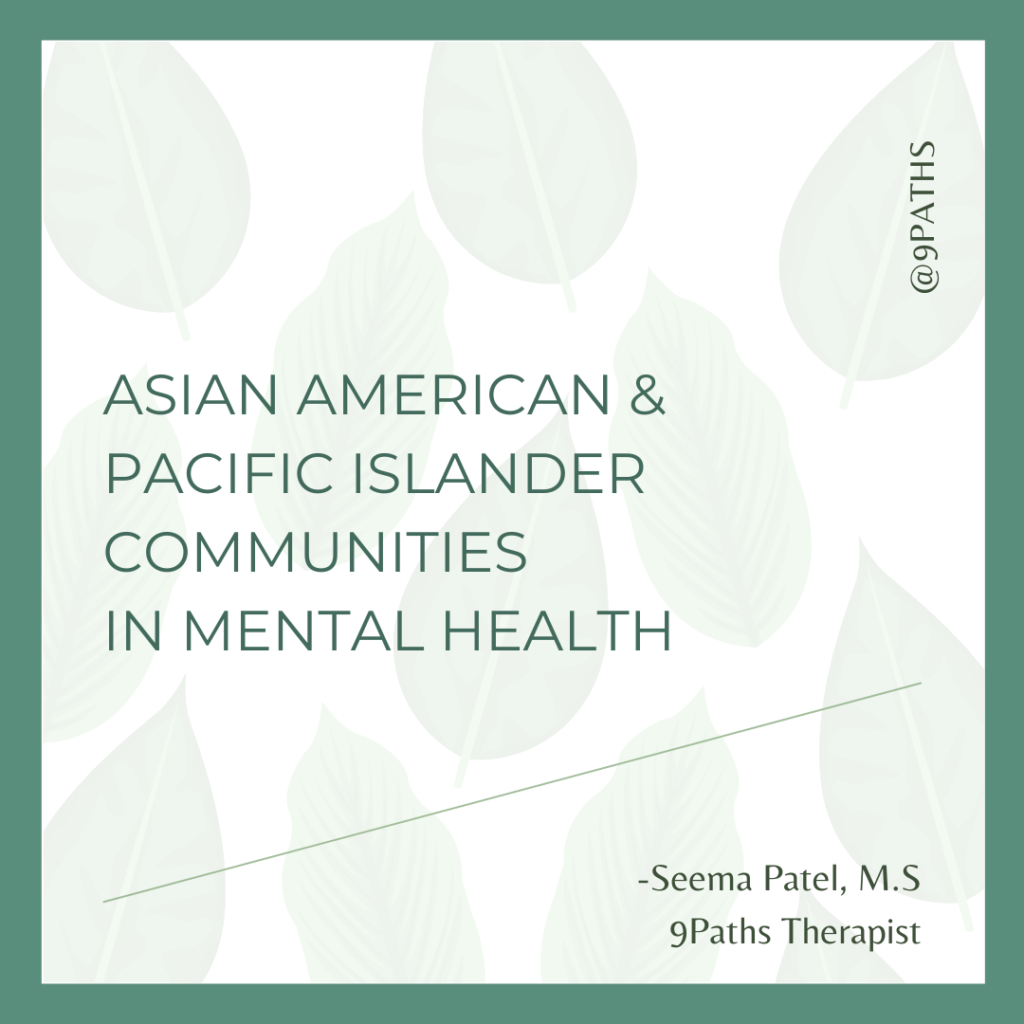Asian American & Pacific Islander Communities in Mental Health
My name is Seema Patel, and I am a therapist here at 9Paths. I will be writing a series of blog posts for Asian American and Pacific Islander Month. I wanted to start the series by introducing myself and sharing some of what led me to the counseling field.
My initial interest in counseling psychology began when I was sixteen; as I delved further into understanding the practice, I realized that there was a heavy stigma surrounding discussions about mental health in the South Asian community and the Asian American community at large.
Over time, as I continued to mature, expand my interests in counseling, and have conversations with my BIPOC peers about mental health, I became aware of a strong passion that urged me to take a stand in changing the stigma surrounding the conversation around mental health.
As I became more familiar with the study of mental health counseling, I noticed a lack of black, indigenous, and people of color in the area of study. This, of course, included a lack of Asian American and Pacific Islander therapists. This lack of representation often propagates the idea that mental illness does not affect BIPOC.

Furthermore, since I started seeing clients, every Asian American client I have seen has said something along the lines of “I have been looking for an Asian/Brown/Desi therapist because you would just understand.”
This “understanding” is not referring to the clinical understanding of their mental health. It is the understanding of having to grow up and live in two different worlds, of being the child of immigrants, of the family dynamics in a collectivist culture, and of the expectations and hopes and dreams of our parents that are put on us.
The emotional labor of having to explain these things to a therapist and getting treatment for mental health issues when it is already heavily stigmatized can prevent people in the AAPI community from seeking help.
In the following weeks, I look forward to exploring more about mental health stigma in the AAPI communities, how the stigma is negatively impacting AAPI communities, and what resources are available to AAPI clients and therapists who want to learn more about the AAPI communities.
Best,
Seema
